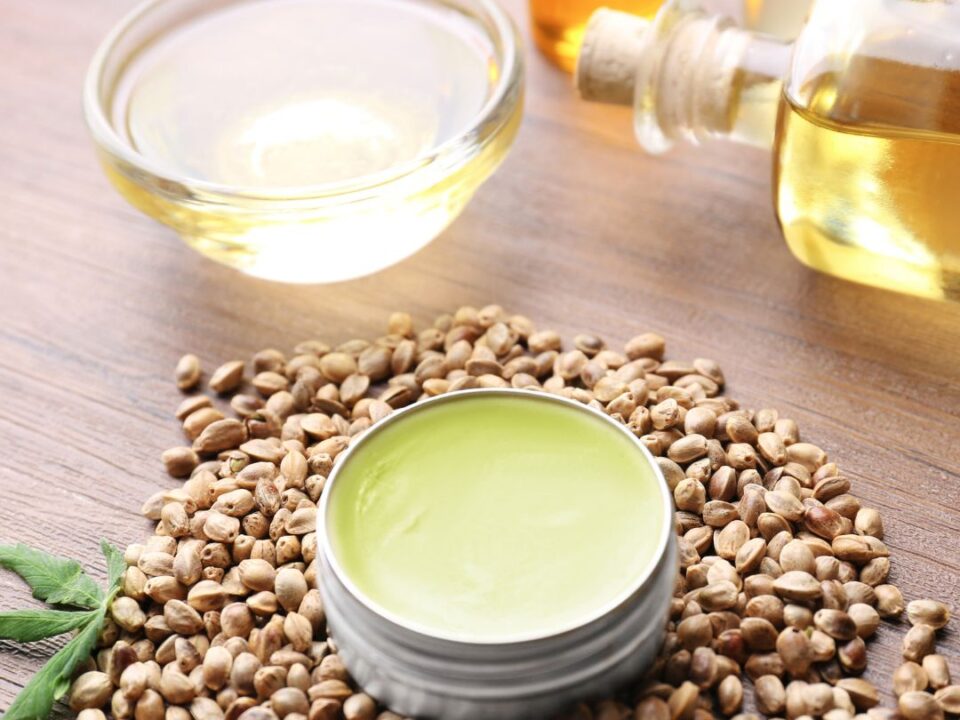
CBD and Fitness go hand in hand. CBD is a non-psychoactive compound found in the hemp plant popular for its potential health benefits. CBD is now being explored in the realm of exercise, fitness, and diet.
There is a growing body of research that suggests CBD may help with exercise-induced inflammation and discomforts. These benefits may make it easier for individuals to stick to their workout and diet plan. CBD may also help with weight management by reducing feelings of stress and anxious thoughts, which can lead to emotional eating.
CBD can be consumed in many forms, including oils, capsules, and topical products like salves. When using CBD for fitness and diet purposes, it is important to choose a high-quality product and to find the right dosage that works best for your own individual needs.
CBD is not an instant solution and should be used in conjunction with a healthy diet and regular exercise. However, it may offer a natural alternative for those looking to help enhance their fitness and diet journeys.
In this post, we will dive into the research on how CBD may help benefit fitness and diet, and we’ll also provide some tips on how to incorporate CBD into your workout and diet routine.
CBD’s Potential Health Benefits
CBD is one of the many compounds, known as cannabinoids, found in the cannabis plant. Unlike its counterpart THC, CBD does not have psychoactive properties. Meaning it doesn’t produce the ‘high’ associated with marijuana use.
Research on CBD is still in its early stages. Many findings suggest that it may have potential therapeutic benefits for a wide range of conditions.
It’s best to think of CBD oil, particularly CBD tinctures and capsules, as a wellness and recovery supplement. Many athletes and fitness enthusiasts report that CBD provides support for tense muscles, relaxation at bedtime, and other benefits. But there’s still a great deal of research needed to understand how CBD and exercise can enhance health and fitness. There are also a lot of variables – like serving size, time of day, body mass, metabolism, diet, and possible interactions with other supplements and drugs – that can affect how CBD works with the body.
While there is promising research on the topic of CBD, more research is needed to fully understand its effects and its potential uses.
CBD and Fitness
CBD is excitedly being explored in the fitness and diet world. This compound has great anti-inflammatory properties. This may make it useful in reducing inflammation caused by exercise. Inflammation is a natural response to stress that occurs within the body, including physical stress caused by exercise. However, chronic inflammation can lead to injury and slow muscle recovery, so reducing inflammation can be beneficial for fitness enthusiasts.
CBD may also help with exercise-induced pain. Studies have suggested that CBD can reduce pain by impacting the body’s endocannabinoid system. This system is responsible for regulating pain, mood, and sleep. By helping reduce discomfort, CBD can help make it easier for individuals to stick to their fitness routines and push through tough workout sessions.
Another area where CBD may be helpful for fitness and diet is anxiety and stress. Research has suggested that CBD may have anxiolytic properties, meaning it may be able to reduce feelings of anxiety. Stress and anxious thoughts can be a barrier to sticking to a fitness routine and a healthy diet. So reducing these feelings may help with adherence.
CBD may have potential benefits for fitness and diet, however, it should not be considered a quick, magical solution. It should be used in conjunction with a healthy diet and regular exercise.
Can CBD Help with Exercise-Induced Inflammation
Exercise plays a very important role in maintaining good physical health. However, it can also cause inflammation within the body. Inflammation is a natural response to stress and injury, including the stress caused by exercise. While acute inflammation is a necessary and beneficial response, chronic inflammation can slow muscle recovery and lead to more injury.
CBD works by interacting with the body’s endocannabinoid system, which plays a role in regulating inflammation. Studies have found that CBD can reduce the production of pro-inflammatory cytokines, which are molecules that promote inflammation.
Exercise can bring better health and happiness, but it can also cause pain in the body. This pain is usually caused by the micro-tears in the muscle tissue and inflammation that occurs during the exercise. While some discomforts are normal and expected after intense exercise, chronic pain can make it difficult to continue with the exercise routine and impede muscle recovery.
One study found that CBD could reduce pain and improve sleep in individuals with chronic pain. Another study found that CBD could reduce pain and improve the quality of life in individuals with other debilitating conditions.
Products with high CBD content such as salves can be a relief after an intense workout.
CBD and Weight Management
Weight management is a complex issue that can be influenced by many factors. These include diet, exercise, genetics, and stress levels. CBD may help with weight management by reducing stress and anxiety, which can lead to emotional eating.
By helping reduce anxious thoughts, CBD may make it easier for individuals to stick to their diet plan and avoid emotional eating.
CBD Dosing For Fitness and Weight Management
When determining how much CBD you should take, it’s important to understand how the dosage depends on your physiology, symptoms, and the desired effects you would like to achieve. Each person is unique and will experience different effects from the same dose, so it is imperative you find your own personal dose. Start with a small dose and work your way up to a dose that you feel gives you the most benefits.
CBD can aid in the relief of many ailments, plus fitness and weight management. With the relief of discomforts, aiding in increasing metabolism, and the way the body breaks down food, CBD most certainly has the potential to affect the appetite. The manner in which your body uses CBD will decide the increase or decrease in appetite.
As with any sort of supplement, we recommend speaking to your medical doctor about whether using CBD makes sense for you. Your doctor can also recommend certain products that align with your needs and help ensure you get the correct dosage.
“These statements have not been evaluated by the Food and Drug Administration. This product is not intended to diagnose, treat, cure, or prevent any disease.”




